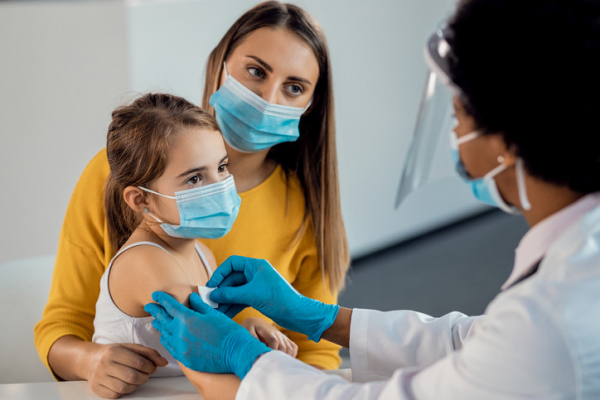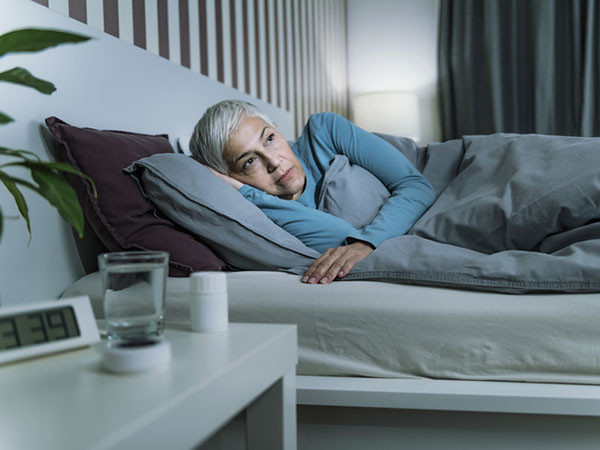
Last week, the FDA authorized the Pfizer/BioNTech COVID vaccine for children ages 5 to 11. After conducting their own review, the CDC now recommends this vaccine for children in this age range, who can begin receiving their first dose within the week.
While many families have been eagerly awaiting the opportunity for their children to be immunized, others are hesitant. And most parents have questions about how COVID-19 affects younger children, vaccine safety in this age range, and whether the benefits outweigh potential risks. As a pediatric infectious disease specialist, I hear certain questions crop up repeatedly. Here’s what we know so far.
How does COVID-19 affect children in this age range?
While children continue to be much less likely than adults — especially adults 65 and older — to get severely ill from COVID-19, some children do get very sick. Thousands of children 5 to 11 have been hospitalized or need ICU-level support to recover from this infection. Almost 150 children in this age range have died from COVID-19. Additionally, over 5,000 cases of a serious inflammatory condition known as MIS-C that can follow COVID-19 infection have been reported. The majority of cases of MIS-C have occurred in children in this age range.
How has the Delta strain of the virus affected children?
The Delta strain of the virus that causes COVID spreads easily, particularly among people who haven’t received the vaccine. Children ages 5 to 11 remain more susceptible to infection, given their ineligibility to be vaccinated. In fact, more than one in five new cases recorded over the past two months while Delta infections surged in the US occurred in this age group, according to weekly reports from the American Academy of Pediatrics and the Children’s Hospital Association.
Can children spread the virus to others?
Several detailed reports describing outbreaks associated with settings such as summer camps, daycares, and schools, and those tracing transmission of COVID-19 within households, clearly demonstrate that children can spread this virus and infect others with whom they come into close contact.
Which COVID vaccines and doses are authorized for children ages 5 to 11?
Pfizer/BioNTech is the first COVID vaccine authorized by the FDA for this age group, based on results from a randomized controlled trial evaluating safety and immune responses. A separate trial launched by Moderna is being considered separately.
In a small number of children, the Pfizer/BioNTech trial compared three doses:
- 30 micrograms (the dose adults receive)
- 20 micrograms
- 10 micrograms.
This part of the trial showed that 10 micrograms, the smallest dose, resulted in fewer side effects while still generating robust immune responses similar to responses achieved with higher doses.
In the next part of the trial, more than 2,200 children ages 5 to 11 were randomly assigned to receive either a 10-microgram dose of the vaccine (two-thirds of participants) or a placebo dose (one-third of participants). All received two shots, spaced three weeks apart.
Those given the vaccine had similar immune responses as 16-to-25-year-olds who had received the full-dose series of two shots.
When Pfizer/BioNTech submitted data to the FDA, there were not many cases of symptomatic COVID-19 infections in trial participants. Out of 19 documented cases, most had received the placebo shots. Estimates suggest the efficacy rate of the vaccine is 90%. (Efficacy measures how much a vaccine reduces infection in a controlled trial.) Tests confirmed that the Delta viral strain had caused the infections.
What do we know about side effects for children this age?
Most children had no side effects other than pain at the injection site. Those who did have side effects most commonly experienced fatigue, headaches, and/or muscle aches after the second dose rather than the first dose. For example, only 6% of children had fever after the second vaccine dose. There were no cases of severe allergic reaction to the vaccine.
What is not yet known?
In very rare instances, the Pfizer/BioNTech COVID-19 vaccine is linked to myocarditis, which is an inflammation of the heart. When this occurs, it is mostly seen in young males following their second dose of an mRNA vaccine (Pfizer/BioNTech or Moderna). Most cases are mild, and children show no signs of long-term injury to the heart.
Among the 5-to-11-year-olds who received the Pfizer vaccine during the trial, there were no cases of myocarditis. However, this side effect is very rare and might not be noted until the number of children receiving the vaccine is much higher. The FDA and Pfizer/BioNTech will continue to closely monitor this age group for any occurrence of this rare side effect.
Can children get vaccinated against COVID-19 and influenza at the same time?
Yes. Children and adults can safely get both vaccines at the same time. The CDC urges everyone to get flu shots to help stay healthy during this flu season.
A randomized, controlled trial in the UK evaluated adults who received a flu shot or placebo shot in one arm and their second dose of the Pfizer/BioNTech vaccine in the other arm. The researchers reported in Preprints with The Lancet that side effects and immune responses were similar, whether the flu shot or a placebo shot was given at the same time as the COVID vaccine.
What other steps can parents take to protect children against COVID-19?
Parents should remember that an individual is not fully immunized and protected by the vaccine until 14 days after the second dose of the Pfizer vaccine. Masks are recommended for anyone who is unvaccinated, or not fully immunized, when indoors with people outside of their household. If rates of COVID-19 are high where you live, masks may be recommended indoors for vaccinated individuals as well.
Parents can continue to encourage other simple habits that help prevent colds, flu, and COVID-19, such as washing hands often, coughing or sneezing into an elbow, throwing away used tissues quickly, and avoiding crowded places and people who are ill when possible.


